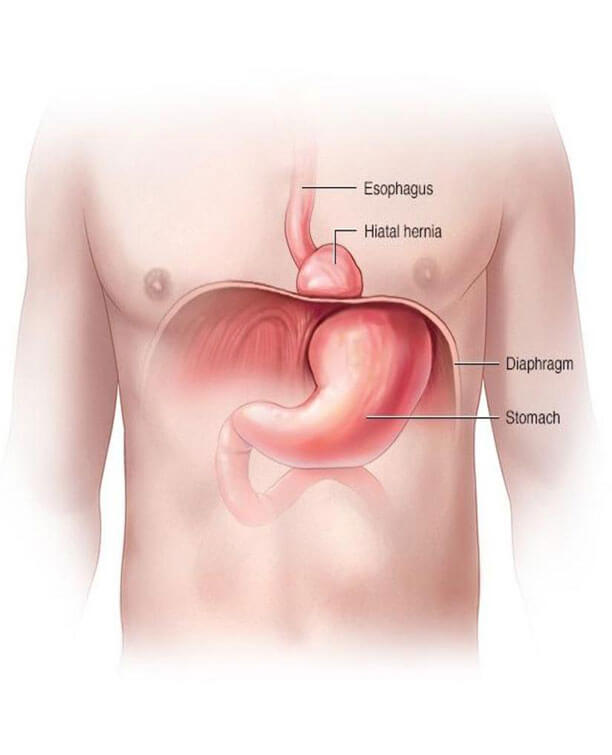A hiatus is a small opening in the diaphragm (a muscle that separates the chest and the abdomen) through which the esophagus passes before it reaches the stomach. When the upper part of the stomach bulges through the hiatus in the diaphragm into the chest region, the condition is called hiatal hernia. When the condition worsens, food and acid from the stomach enter into the esophagus leading to a condition called heartburn or GERD (Gastroesophageal reflux disease). But most patients are often asymptomatic and this is incidentally picked by upper gastrointestinal endoscopy. There are two main types of hiatal hernias: sliding and paraoesophageal.



Treatment is based on the severity of the condition. Hiatal hernias do not usually require any treatment if it is not symptomatic. Symptomatic patients are usually treated with medicines like proton pump inhibitors and lifestyle changes.

The gastroenterologist will advise you to limit your consumption of fatty or fried foods and caffeine. Several small meals throughout the day are advisable rather than the regular 3 large meals. Meals should be had at least a couple hours before bedtime and lying down immediately after meals should be avoided. Maintaining a healthy diet and weight is paramount. Smoking should be stopped. Lifestyle changes considerably help to relieve the symptoms of a hiatal hernia, thereby enabling the patient to live a full life!
Surgery is the last resort in sliding type hernia with severe heartburn if lifestyle changes and medication do not help. All symptomatic paraoesophageal hiatal hernias should be repaired
Laparoscopy:
Also known as keyhole surgery or a minimally invasive surgery (MIS), laparoscopy involves the use of a very thin tube called a laparoscope, which has a tiny video camera and a light at the end of it. This is sent into the abdomen through a cannula, enabling the surgeon to view the insides of the abdomen on a monitor outside. With small movements and tiny instruments, the hiatal hernia is carefully repaired through small incisions made in the abdomen.
There is minimal blood loss in this surgery and it is very precise. Recovery time is faster when compared to open surgery with also less scarring.


Our gastroenterology services treat all kinds of digestive system disorders. Book an appointment now with our GI Specialists and have the best team of doctors treating you!